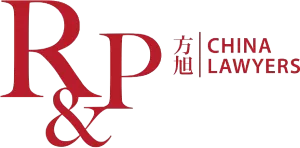When selecting business partners in China, the western idea is that Chinese counterparts are trustworthy, until proven otherwise. Yet most Chinese business leaders act according to the opposite principle – trust has to be earned. It is important to be aware of this potential business culture clash, as I have experienced numerous times when performing due diligence and research activities for business partners in China.
Before business partners enter into any formal agreement, they usually check the opposing party's credentials. A due diligence investigation will assess an organisation's track record, legal status, stability and other important factors. In Europe and the US, there are quite a number of reliable sources that can help build a clear picture of a prospective business partner. In China, the practice of due diligence is equally common, though fairly different in style. China due diligence requires formal investigation techniques, a well-developed gut feeling, and even a healthy dose of 'creative research'.
Blurry picture
The number of official sources to verify a company's credentials in China is rather limited. Government records and online databases show the type of licences the company operates under (though this may be incomplete or outdated), and one can check a company's capital contribution fairly easily. Even with this information on hand, the real picture of a potential business partner can remain rather blurry.
Since the information contained in government and official databases is limited, the next step in a 'fact finding mission' will be online due diligence research. On their own website and on news and business social media, an entrepreneur or company can easily claim they have great contacts with local and regional governments, without anyone being able to verify the legitimacy of such claim. China is large and the online channels a company can use to present itself are numerous. This makes it hard to distinguish between trustworthy and falsified sources, and even harder to verify data. Some say that a person or business that wants to market itself in a positive way in China, can do so without having to worry too much about getting all the facts right.
Great imagination
Let's deal with the 'facts' right away. As someone with considerable due diligence experience, I can confidently say that Chinese companies tend to have a great imagination when it comes to describing who they are and what their business situation and connections are.
For example, Company X may present itself as having been established in 1994. On its website and on other online sources its CEO claims that the company is very experienced in manufacturing and selling a certain product, has shareholdings or investments in Company Y and holds the very important industry Licence Z.
In no way verifiable
In reality, none of these things may be true. It may turn out that 1994 was the year that the CEO landed his first job in the industry. The stake that the company allegedly has in Company Y is in no way officially registered or verifiable. The CEO may claim to be the sole shareholder, when in fact he does not even hold a majority stake. The company may say they're experienced manufacturers, when in reality they are only allowed to engage in sales and marketing. Finally, the licence may turn out to be slightly different than described or has yet to even be obtained.
Does this mean every Chinese businessman that operates this way is a crook? Not necessarily. It does mean that in business in China, some exaggeration appears to be accepted in an effort to make the company look good to prospective business partners. A few white lies in the profile of a Chinese company may even be overlooked if the financial situation is strong and the partner has otherwise proven to be reliable and stable. But once enough red flags appear and a business is far removed from what the company wants you to believe it is, the yellow light turns red. If a business says its turnover is $100 million and the company's contributed capital is only $10,000, then something may not be right. Trust your instincts on this.
Red flags will appear
Some red flags will appear in the first two stages – checking databases and online due diligence – while others appear only in stage three: during a personal visit to the company and its management. Asking the right questions and trusting your gut feeling is essential. It may help to ask someone else to place orders anonymously or ask around. Some companies even decide to retain an investigator to dig deeper if red flags keep turning up and the picture remains unclear.
Quite often we witness that claiming success in China goes with 'embellishment' and 'exaggeration' – perhaps Chinese want to be successful and are in a great hurry to cash in on new opportunities. This does not mean that all 'white lies' make a company a bad future business partner. But it does mean that restraint is in order, possibly followed by more questions and further due diligence.
Some may advise to 'trust nobody in China'. But when it comes to business in China, I believe trusting nobody will get you nowhere. What works is to get rid of all naivety and apply reason. I would rather go with the cautious approach, recommending foreign companies to ask questions and start a dialogue, while have an experienced China consultant interpret documents and information, all of which may contribute to building a relationship of trust with your business partner.
The content of this article is intended to provide a general guide to the subject matter. Specialist advice should be sought about your specific circumstances.

